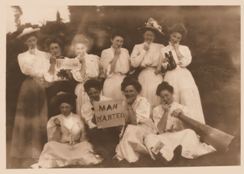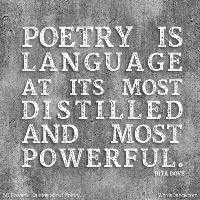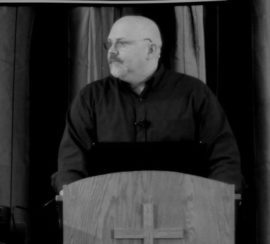I’m not sure which is worse, the constant misuse of Proverbs 29:18a (KJV) or how many times I find myself saying, “That’s not a good translation,” whenever I try to explain the whole proverb. Now, I have to say, “the whole proverb,” because I’ve never heard anyone actually...
Continue reading
January 12, 2018 Andrew Sargent
101 Most Misunderstood Verses, Biblical Language Issues, Biblical Studies, Biblical Theology, HAGALAH, Inductive Study Methods, Old Testament Studies
When I talk about Biblical Theology I usually intend an approach to Scripture that envelopes many things. Like ordering a car and understanding that it will come with a lot of parts already put together… hopefully. Some of my friends prefer kits. Biblical Theology’s subject is specific. It’s...
Continue reading
December 15, 2017 Andrew Sargent
Biblical Theology, HAGALAH, Inductive Study Methods, Theology
No Comment
How hard could it possibly be to find agreement on the meaning of a phrase as simple as biblical theology? In truth… harder than I’d like. Biblical theology is not, after all, merely theological ideas that are “biblical,” and the history of the phrase biblical theology is, unfortunately,...
Continue reading
December 8, 2017 Andrew Sargent
Biblical Theology, HAGALAH, Inductive Study Methods, Theology
No Comment
One of the great things about learning Hebrew is the ability to share in the feel of the stories beyond raw content. Good writing uses language as more than just a mechanism for passing data; it communicates with a measure of art, and, at times, music, working rhyme,[1]...
Continue reading
December 1, 2017 Andrew Sargent
Biblical Language Issues, Biblical Studies, Biblical Theology, Inductive Study Methods, Theology
No Comment
Doing biblical theology requires one to lay aside even precious biases in order to hear the message of Scripture speaking from foreign lands in foreign tongues out of foreign cultures. The Phenomenological method, so vital to biblical theology, demands that we listen to each text as believers wholly...
Continue reading
August 9, 2017 Andrew Sargent
Bible Backgrounds, Biblical Studies, Biblical Theology, HAGALAH, Inductive Study Methods, Theology
No Comment
To those who mainly regard the Bible as a source for answering their every question about God and the world, biblical theologians can be a real pill, and biblical theology can feel more than a little threatening… I get that. We are, however, worth getting to know. Thus,...
Continue reading
July 26, 2017 Andrew Sargent
Bible Backgrounds, Biblical Language Issues, Biblical Studies, Biblical Theology, HAGALAH, Inductive Study Methods, Old Testament Studies, Theology
When reading biblical poetry, one must learn to connect with the poem on more than one level. While it is important to carefully define the Hebrew words being employed in any passage, and to track a poem’s use of parallelism and word pairs, and to follow the overall...
Continue reading
June 28, 2017 Andrew Sargent
Biblical Studies, Biblical Theology, Inductive Study Methods, Old Testament Studies
No Comment
Poetry, by definition, is usually regarded as distinct from another category of writing called Prose. To express it simply, Prose is normal writing. It reflects the speech patterns of typical daily conversation, even if a bit more planned and carefully refined. Poetry then is an alternate way of...
Continue reading
June 19, 2017 Andrew Sargent
Biblical Language Issues, Biblical Studies, Inductive Study Methods, Old Testament Studies
In this edited sermon, I consider Jeremiah 45 in historical, grammatical and literary context. Baruch has been called away from a life of promise to play second fiddle to a hated prophet… to share in Jeremiah’s suffering and rejection. He is less than excited by the call and...
Continue reading
April 26, 2017 Andrew Sargent
Bible Backgrounds, HAGALAH, Inductive Study Methods, Old Testament Studies
No Comment
This is a heavily edited message about the power of poetry as a vehicle for the inspired word of God. Poetry is not a mere vessel for the message of poetic sermons, but is part of the message, holding secrets to meaning, and the power of emotive connection....
Continue reading
April 24, 2017 Andrew Sargent
HAGALAH, Inductive Study Methods, Old Testament Studies
No Comment
In this edited sermon, I address the common misinterpretation of the line in Isaiah 29:18 Where there is no vision, the people perish. First people fail to quote the whole proverb. It goes, “Where there is no vision, the people perish: but he that keepeth the law, happy is...
Continue reading
April 17, 2017 Andrew Sargent
101 Most Misunderstood Verses, Biblical Language Issues, Biblical Studies, Biblical Theology, HAGALAH, Inductive Study Methods, Old Testament Studies
No Comment
This is the heavily edited 6th narrative sermon in the Gospel of Mark. Here Mark uses a repeating story structure to portray Jesus as a deified man who overcomes the impossible in bigger than life miracles after the experts of the day have done all that the could...
Continue reading
April 12, 2017 Andrew Sargent
Biblical Theology, HAGALAH, Inductive Study Methods, Meeting the Jesus of Mark, New Testament Studies, NT's Use of the OT
No Comment
This is the 8th narrative sermon in the Gospel of Mark in which Jesus’ confrontation of the Pharisaic regulations called “The Traditions of the Elders,” which are a body of 18 new oral laws passed by the religious leaders in order to drive a wedge of hatred between...
Continue reading
April 10, 2017 Andrew Sargent
101 Most Misunderstood Verses, Bible Backgrounds, HAGALAH, Inductive Study Methods, Meeting the Jesus of Mark, New Testament Studies
No Comment
This is a highly edited sermon on the 5th narrative sermon of the Gospel of Mark. In it I address Mark’s depiction of Jesus’ parable telling. It is the first record of Jesus’ actual teaching since the short snippet recorded in chapter one concerning the time of kingdom...
Continue reading
April 5, 2017 Andrew Sargent
Biblical Theology, HAGALAH, Inductive Study Methods, Meeting the Jesus of Mark, New Testament Studies
No Comment
Okay, so we’ve established that reading the books of the writing prophets is hard. They wrote in poetry; they make casual reference to cultural practices of which the modern reader is completely ignorant; they preach to their own people about events that are happening around them, without feeling...
Continue reading
February 1, 2017 Andrew Sargent
Biblical Studies, Inductive Study Methods, Old Testament Studies
No Comment
Okay, so the Prophetic books in Scripture are both awesome and awfully difficult to understand. They have a pesky habit of preaching under divine inspiration about events that they never explain… they didn’t need to; their original audience already knew all about it. Another difficulty that plagues their...
Continue reading
January 30, 2017 Andrew Sargent
Bible Backgrounds, Biblical Studies, Inductive Study Methods, Old Testament Studies
No Comment
The garment hem plays an unexpected role in many Scriptures. It is unexpected because we have nothing like it in our western world. Below is a link a recent lecture I delivered on the subject of the importance of reading Scripture within ITS OWN historical context and not in...
Continue reading
January 20, 2017 Andrew Sargent
101 Most Misunderstood Verses, Bible Backgrounds, HAGALAH, Inductive Study Methods, Old Testament Studies
No Comment
One of my favorite gags in the old 1980’s TV show, Taxi, has a nervous Tony Danza shaving several times throughout the day to keep himself fresh looking for an important late afternoon appointment. At nearly the last minute he comes down the stairs in the taxi center...
Continue reading
January 16, 2017 Andrew Sargent
Biblical Studies, HAGALAH, Inductive Study Methods, New Testament Studies
No Comment
I’m sure most of you have heard at least five prodigal son sermons in your lifetime… I’ve been around a while and can lay claim to at least 20 myself… in fact, I’ve preached more than five… not including the little mini-sermons I’ve been doing in co-operation with...
Continue reading
January 9, 2017 Andrew Sargent
Biblical Studies, HAGALAH, Inductive Study Methods, New Testament Studies
In two previous posts[1] I’ve been discussing Proverbs 22:6 and the translation issues involved in what seems a rather ambiguous central phrase, “upon the mouth of his way” which seems best when translated “according to his way.” We considered how only two of the six suggested interpretations of...
Continue reading
November 14, 2016 Andrew Sargent
101 Most Misunderstood Verses, Bible Backgrounds, Biblical Language Issues, HAGALAH, Inductive Study Methods, Old Testament Studies
No Comment















